Do Solar Panels Work at Night?
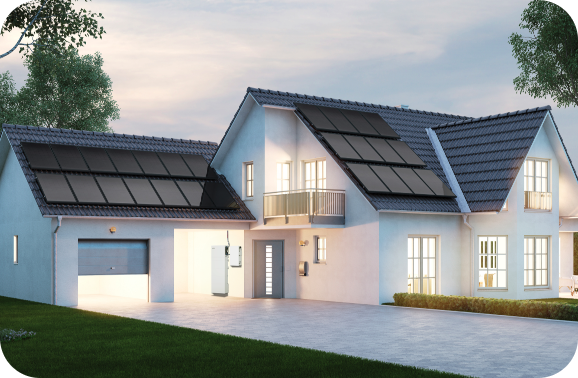
Solar panels can save you thousands of dollars on energy bills and may diminish your carbon footprint while helping the planet. But do solar panels work at night, or will you need to draw from the power grid for your nighttime energy consumption? The short answer is no; solar panels have photovoltaic cells that trap the sun’s rays with their receptors. The sunlight is then converted into electrical energy. Once the sun goes down, the panel cannot generate energy.
However, there is a way around this problem to prevent you from using the grid at night and paying your utility company. You can store the energy your panels produce in a solar battery, or you can send the extra energy to your electricity company in exchange for energy credits. Keep reading to find out the specific details of both methods — and how Axia can help you experience the benefits of energy independence and electrify your life!
Why Don’t Solar Panels Work at Night?
Solar panels generate electricity by converting sunlight into usable energy. They rely on photons in sunlight to knock electrons free from atoms in a process called the photovoltaic effect. These freed electrons then create an electric current. Therefore, the amount of electricity generated depends on the sun’s intensity. The absence of sunlight at night means no photons are available to excite electrons in solar cells and initiate the flow of electric current. As a result, solar panels are unable to produce power during nighttime hours.
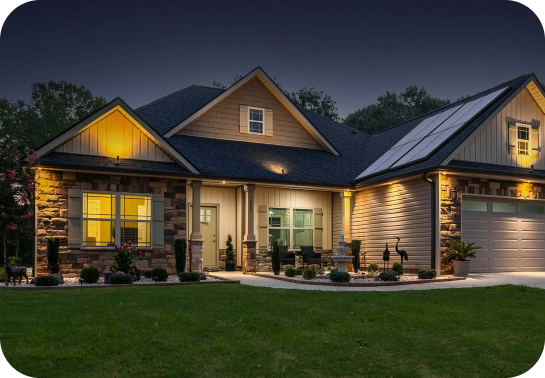
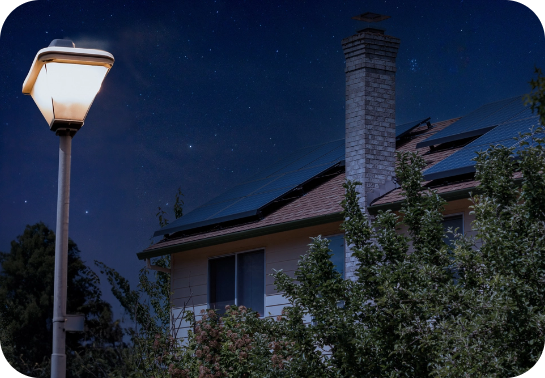
Can Street Lights Have an Effect on Solar Panels?
Streetlights are designed to illuminate the ground, and their light output is relatively low compared to direct sunlight. Solar panels require a certain light intensity to generate electricity effectively, and streetlights do not usually provide enough luminosity for this purpose. While some energy may be generated from extremely low light conditions like streetlights, it is typically negligible and insufficient to power any significant electrical load.
What About Moonlight?
Since photovoltaic cells generate electricity using light, you may wonder whether the moon provides enough light to power your solar panels at night. As it turns out, the moon is too dim to affect your solar panels. Moonlight is a reflection of sunlight off the moon’s surface, and it is significantly weaker than direct sunlight. The intensity of moonlight is typically about 1/400,000th of the sun’s intensity on a clear day. This low light level is generally insufficient to generate significant electricity from solar panels.
Can Solar Panels Work on Cloudy or Snowy Days?
Even on cloudy or snowy days, your panels will still absorb sunlight and generate energy. Once the energy is generated, it will flow from the solar panels to an inverter. The inverter converts the raw electricity into ready-to-use electricity.
On some days, your solar panels will produce more electricity than you consume at your home, so you should set up a system to store this extra energy to use at night and on cloudy days. You can do this through a battery and net metering. In the following two sections, we’ll dive into how solar panels work at night and how solar panels store energy for night use.
See How Solar Panels Produce Power
Net Metering
Net metering isn’t a storage method per se, but it works like a savings account to draw on at night when your panels aren’t generating electricity. When you set up net metering with your local power company, the energy your system produces that you don’t use goes back to the grid. Every time you send extra energy to the grid, you can earn credits toward lowering your electric bill. Conversely, you’ll be able to use grid power when your solar panels aren’t operating at night. It’s like giving extra energy to the “bank” and withdrawing from your “account” when needed.
When it comes to net metering, keep in mind that you’ll be subject to state regulations and your electricity company’s rules. Unlike solar batteries, net metering is not entirely within your control. Power failure can occur for many reasons, and when it does, there’s little you can do about it.
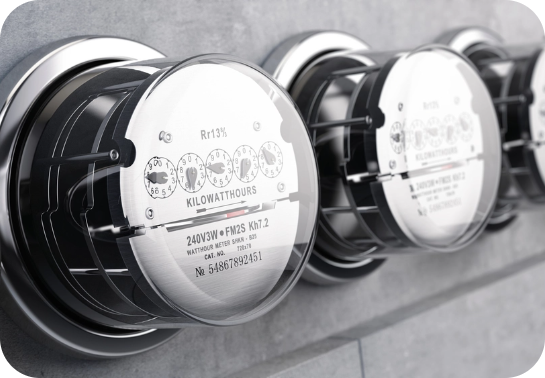
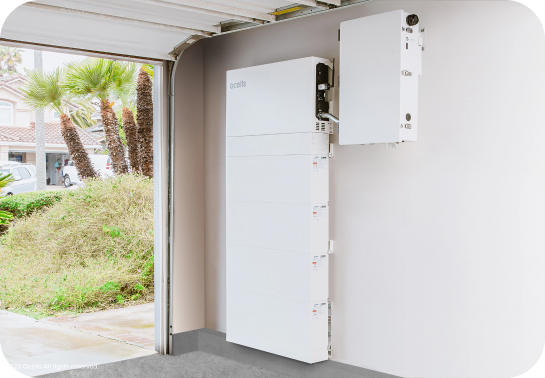
Battery
To understand the question, “how do solar panels work at night?” it’s important to understand electricity storage. Perhaps a better question is, “do solar panels store energy for night use?” And the answer is yes, but only if you have a solar system with battery storage.
Using Solar Battery Storage
In such a system, the extra energy that doesn’t get used charges the batteries. When your panels stop generating electricity, the battery will then release the electricity already stored in it.
If your solar budget is tight, remember that you can choose how many batteries you would like to install based on your individual needs.
Other Types of Solar Panels
In addition to net metering and battery storage, researchers are developing new and innovative methods for generating solar electricity at night and on cloudy days. These solutions are not being used to power homes today, but they represent the future of what we can expect. They include:
Solar Energy Without Light
Researchers found that power can be generated from the temperature difference between the cooling panels at night and the warm surrounding air. In this method, heat is produced by using a thermoelectric generator that produces electricity when heat passes through it.
Rain-Powered Solar Panels
In this system, electricity is generated from the friction raindrops generate on the solar panels. This method aims to increase the effectiveness of standard solar panels. The neatest part is that it will also produce energy at night if it rains.
Robot Cleaners
This is aimed at solar farms. Dust can cover the panels and decrease the effectiveness of electricity generation. These robots can reduce the difficulty of cleaning a large solar installation.
Go Solar With Axia
While solar panels don’t generate energy at night, you can still use electricity when the sun goes down. Whether you’re considering net metering or a solar backup battery, the solar professionals at Axia can help you determine the best option for your new system and situation. Get in touch with us today to add a solar panel system to your home so you can take more control of your energy use while electrifying your life.